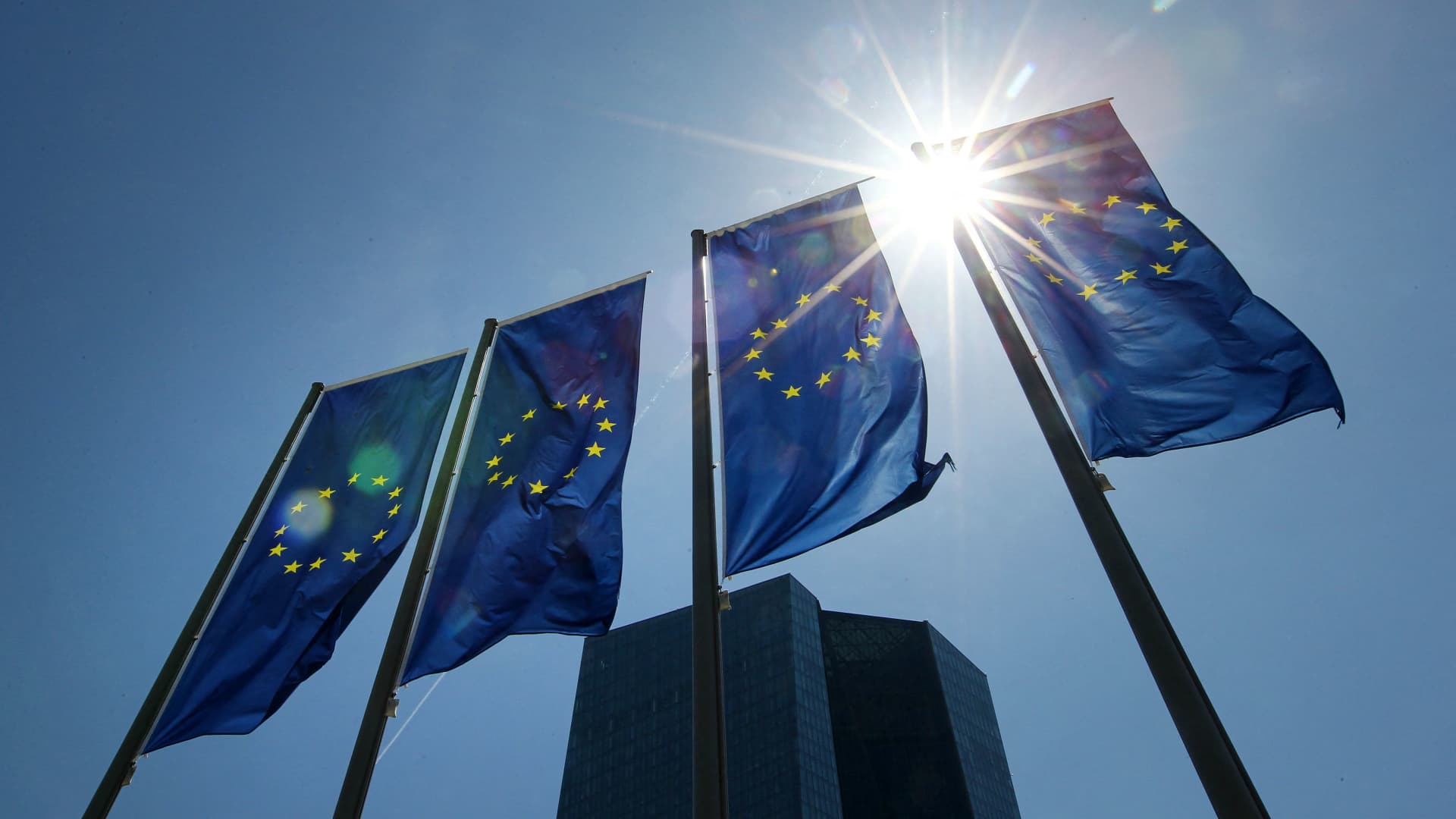European Central Bank holds interest rates steady after 10 consecutive hikes

The European Central Bank ended its run of interest rate hikes on Thursday, despite new upside risks to inflation from oil markets amid the Israel-Hamas war.
The key rate is set to remain at a record high of 4%, where it was brought through 10 consecutive hikes that began in July 2022 and pushed rates back into positive territory for the first time since 2011.
The Governing Council said recent information confirmed its medium-term outlook for inflation at 2.1%.
“Inflation is still expected to stay too high for too long, and domestic price pressures remain strong. At the same time, inflation dropped markedly in September, including due to strong base effects, and most measures of underlying inflation have continued to ease,” it said in a statement.
Markets had priced in a more than 98% chance of a hold, after the ECB gave a strong indication at its previous meeting that rates had peaked.
The euro was 0.15% lower against the British pound at 1:40 p.m. London time, declining slightly after the announcement. The European currency was 0.2% down against the U.S. dollar.
Rate cut discussion ‘premature’
The bank’s September hike was described as a dovish rise, as the ECB said rates had reached levels that would substantially contribute to the fight against inflation in a timely manner, if “maintained for a sufficiently long duration.”
It repeated this message on Thursday and said that its decision-making continues to rely on data.
ECB Governing Council members have in interviews stressed a ‘higher for longer’ message on rates, while insisting that an inflationary shock could spur them to hike again, as they seek to dampen market expectations of rate cuts starting in the middle of next year.
Asked how long rates need to stay at current levels, ECB President Christine Lagarde told CNBC’s Annette Weisbach, “We refer to timely manner, sufficiently long. But in the same breath, I say we shall be data-dependent. At this point of our fight against inflation and after 10 successive hikes, now is not the time for forward guidance.”
Lagarde said the topic of rate cuts was not discussed by the Governing Council.
“Even having a discussion on a cut is totally, totally premature. For the moment we are saying we are steady, we have to hold,” she said.
The ECB needs to assess data in areas such as wage negotioations that will not be released until 2024, she added.
Higher for longer
The ECB’s decision is in line with major central banks around the world, which are widely considered to have already reached or to be on the brink of peak interest rates. The Bank of England, Swiss National Bank and U.S. Federal Reserve all opted to hold rates in September.
The ECB needs monetary policy to remain sufficiently tight to meet its current inflation forecasts of 5.6% this year, 3.2% next year and 2.1% in the “medium term.”
However, the central bank must also reckon with persistently weak business activity and tepid euro zone growth forecasts of 0.7% in 2023 and 1% in 2024, as former EU powerhouse Germany stagnates.
Lagarde confirmed it is also assessing volatility in the bond market, where yields have risen sharply, reflecting a global sell-off.
Marcus Brookes, chief investment officer at Quilter Investors, said risks to inflation remained in wage growth and in energy prices going up as a result of uncertainty in the Middle East.
“Going forward, like other central banks, it will say the market needs to expect higher interest rates for longer, with the door being left open should we see inflation spike again,” Brookes said in an emailed note.
“However, given the stagnating economy and the fact other central banks have moved into a holding pattern, something very unexpected would need to happen for rates to be raised again. The pressure will quickly shift to cutting rates given the lack of economic growth.”




